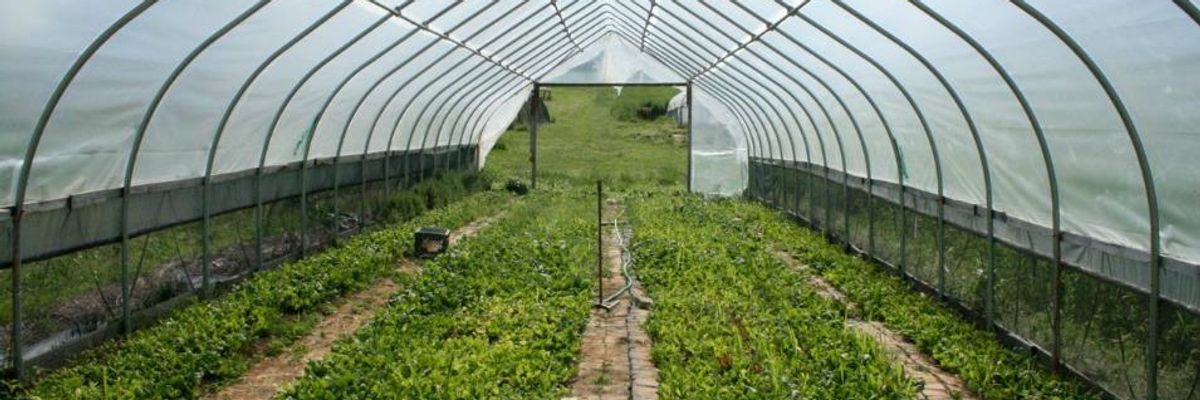It may surprise many readers to know that producing enough food is not responsible for world hunger -- we already produce enough food to feed 10 billion people. Hunger is caused by economic inequality. Despite this fact, the farming industry often cites the need to feed a growing population to justify the use of toxic, synthetic chemicals used in conventional farming.
Apples to oranges
Rodale Institute's Farming System Trial has compared organic to conventional farming, side by side, for over 33 years. What we've found is that, in the long term, the yields are the same with organic performing 33 percent higher in years of drought. Looking only at yields, this means that organic can feed the world just as effectively as conventional. Looking beyond the singular issue of yields, it becomes clear that regenerative organic farming is indeed the only way to feed the world in a way that encourages global health, and especially economic equality - the true root of hunger.
"Rather than using synthetic fertilizers, organic farmers build the health of the soil using compost, crop rotations, cover crops and reduced tillage. Using biology rather than chemistry, organic farmers mimic natural systems to promote healthy soil as the foundation for healthy food and, ultimately, healthy people."
While organic farmers depend upon the resources found on their own farms, conventional farming depends heavily on 'external inputs,' which are items that need to be purchased from somewhere off of the farm such as fertilizers, pesticides, herbicides, and more. These products are manufactured and then transported to the farmer - creating pollution and increasing the costs of doing business for the farmer. Increasingly dependent on a system of external inputs, farmers find themselves paying more and more for their inputs, eating away at their profits.
Rather than using synthetic fertilizers, organic farmers build the health of the soil using compost, crop rotations, cover crops and reduced tillage. Using biology rather than chemistry, organic farmers mimic natural systems to promote healthy soil as the foundation for healthy food and, ultimately, healthy people.
A generous profit
The Farming Systems Trial also measured the economics and found organic farming more profitable than conventional. Of course, there are still price premiums for organic products, as the demand is currently higher than the supply - an added bonus for today's organic farmers. To see how the economics would compare even without that price premium, we removed it from the data and found that the numbers still favored the profitability of organic farms over conventional.
Beyond economics, there are clear environmental and health advantages of farming organically. However, as we focus our attention on hunger, we must remember that buying organic is about more than protecting our own bodies from harmful poisons. Working toward an organic planet helps to move those in poverty away from the very economic inequalities causing world hunger.

